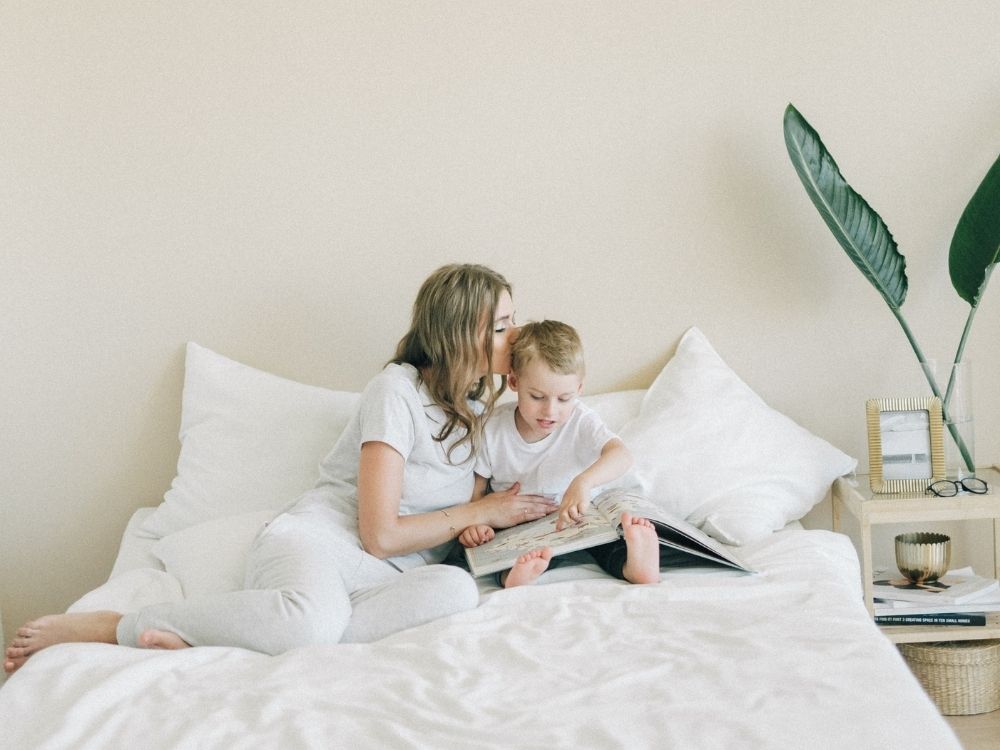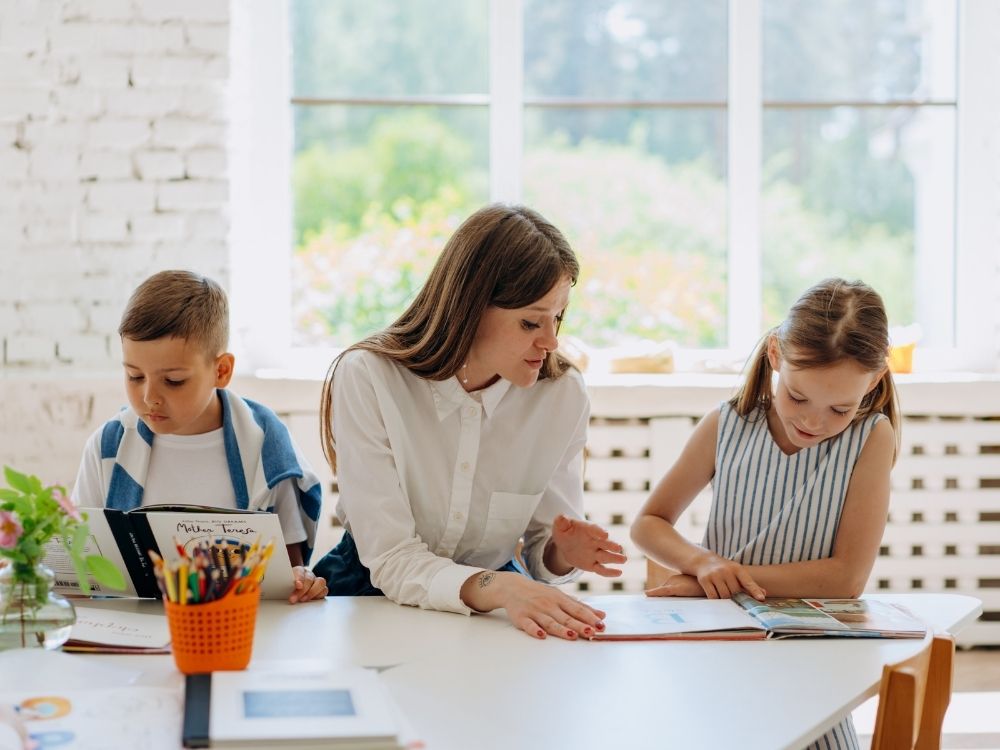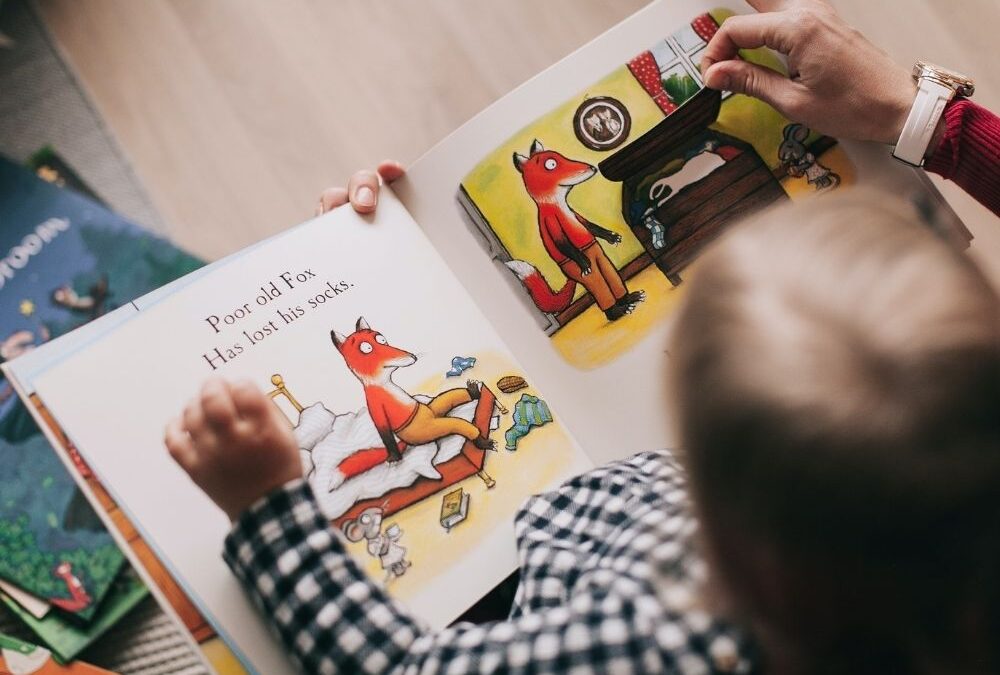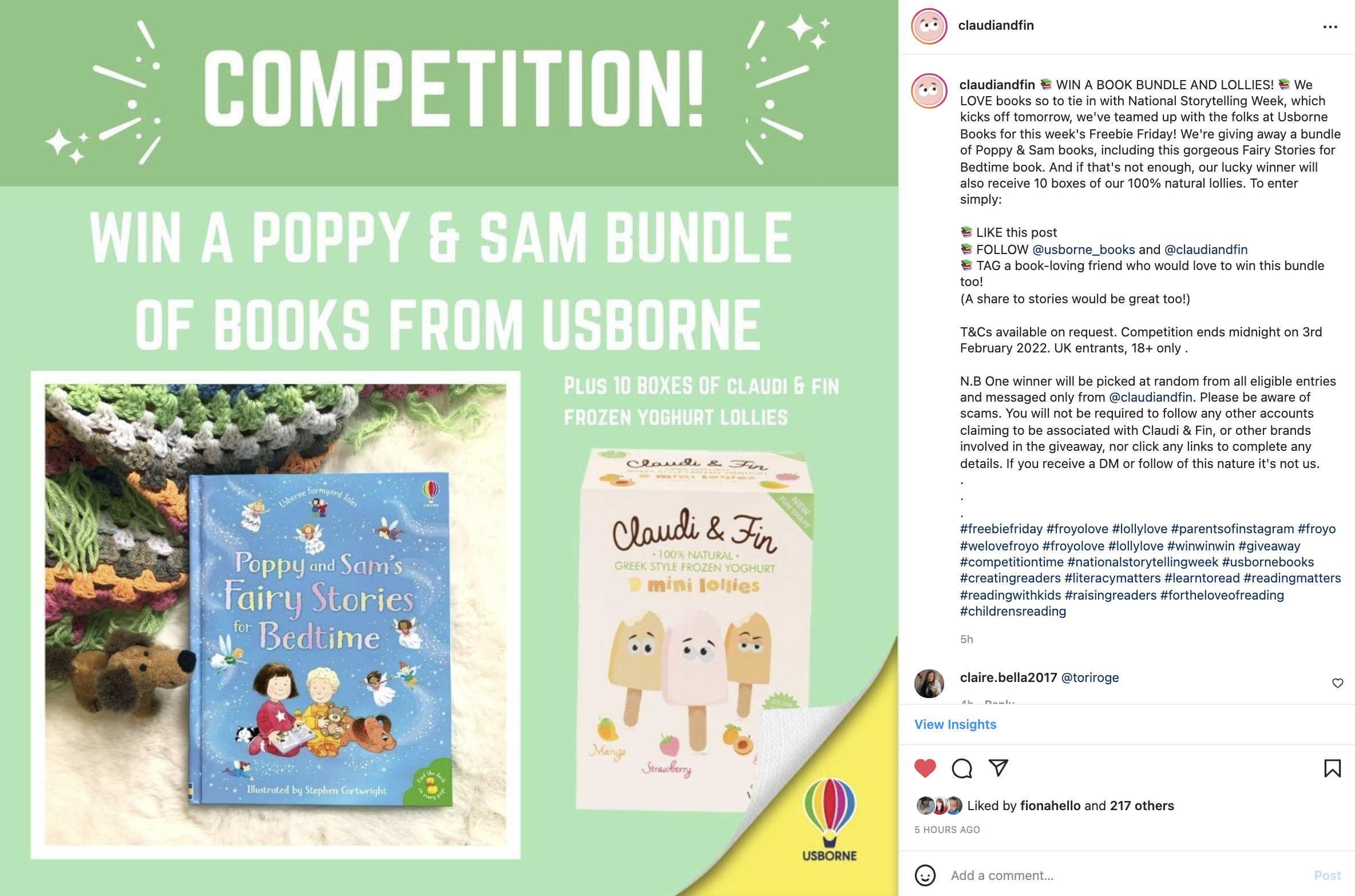National Storytelling Week starts today so we’ve enlisted the help of the experts to share their advice to parents and carers to help make sure storytime with your child is fun and enjoyable.
Children love books and stories
Through books and stories, children are introduced to new people, creatures, ideas, and adventures. Storytelling provides them with a window to new worlds. So when you share a book with your child, you’re sharing more than the words and pictures. You’re sharing a moment when the outside world stops and imagination takes over.
Without realising it, children learn valuable life lessons through the stories we tell them. So here are a few ideas and things to think about to make story time even more fun!

A moment of calm
After 20 years in publishing, mum of two Georgina Atwell is now founder of children’s book review web site Toppsta. She believes that spending just 10 minutes a day telling your child a story can bring an essential sense of calm that is important for little ones.
“The world can feel overwhelming to children so storytelling is a brilliant way to bring some quiet and focus when the world can feel daunting” says Georgina.
So after a hectic day at nursery, pre-school or school try to find just 10 minutes to share a story together without any distractions, screens or demands. Not only will it create a moment of calm, but it’s also an easy way to re-connect with our children, advises Georgina.
“Story time only needs to be a small amount of time but it can make a big difference and provide not just some quiet time but a shared experience which you can enjoy together”.
Create stories around everyday life
Miralee Askew is a former primary Headteacher, OFSTED School Inspector and government PSHE adviser. She has developed Nurseryphonics™, a reading programme aimed at pre-schoolers that is based on much-loved nursery rhymes.
“It is widely acknowledged that developing children’s oral language and providing rich opportunities to master the skill of listening, is a vital component for overall learning and laying the foundations for a child’s future literacy success. This really is a big deal and should have ‘rock star status’ in a child’s first 5 years” says Miralee.
We love the idea of stories having rock-star status! Miralee believes the key to success is to use fun ways to support our children on the path to success.
“Try utilising meaningful events in your child’s life to create narratives that support their understanding of the experiences they encounter. So, for example, conversations around family celebrations, shopping trips or visits to playgroup, could form the basis of an oral story which would draw a child’s attention to a whole range of vocabulary, language patterns, storylines and structure” advises Miralee.
And for those moments when you’re feeling that your own imagination isn’t firing on all cylinders, revert to tried and trusted nursery rhymes. Nursery rhymes are easy to learn and are a brilliant way to pique a child’s interest in language meaning, new words, understanding of the world, narrative, and simple storytelling. They are powerful vehicles for early literacy and phonics. Children often memorise stories and traditional tales that they are familiar with; watch their confidence and natural, expressive oracy skills shine through when encouraged to perform a verbal retelling of the tale!

Use songs to tell stories
Songs are a great way to tell stories to little ones and are such a fun way to spend some time with our children.
Dr. Clare Seymour is the founder of Musicbuds, a programme to help teach children through the power of song. As a primary music education consultant for the BBC, Clare has spent much of her professional career delivering music education to the Primary Years. Part of her Doctoral research involved discovering just how important singing and songs are to the development of our children.
“Many of the songs you know are likely to have a narrative thread running through them. Even though the chorus might be repetitive, the verses often work hard at developing a storyline. While you may not always be able to remember all the words perfectly, it’s likely you can still clearly remember what the story is about and how it is structured. When you put a story and song together, you come up with a winning combination!” says Clare.
One major difference between a spoken story and a sung one is the strong and consistent underlying pulse that accompanies the sung version. This structure provides momentum and direction to the storytelling and it adds its own vibrancy and aural ‘colour’ to the interpretation.
“It is often easier to understand and remember a story when it is presented through song. Especially when the song includes actions too, and the children get to sing it over and over again. Furthermore, the children are learning so many more other useful skills all at the same time! Singing a story is a brilliant way to teach children a number of things simultaneously, spontaneously, and also, actually, rather effortlessly!”.

Don’t overthink it
We don’t have to be masters of storytelling to engage our children’s imagination and curiosity. Nurseryphonics’ Miralee Askew’s number one piece of advice is to keep it simple!
“Bedtime could be an ideal time to reflect on the day and build a story around it, such as getting wet in the pouring rain whilst on the way to playgroup, play dates at the park or Grandma visiting to make chocolate cookies for a teatime treat – talk through the experience step by step, describe what could be seen, heard, touched and smelt; explore and express feelings, emotions and opinions”.
Check out Miralee’s free e-book The Reading Rocket Launcher where she shares her powerful methods to help get your child reading whilst simultaneously having some fun bonding and connecting with them.

And remember, it’s never too late to start reading to your children
It’s important to know that it’s never too late to start reading to your child. Back to Toppsta founder Georgina Atwell.
“Aside from the obvious benefits of developing language and communication skills, stories assist children with their emotional development, helping them to see that there are multiple ways of seeing the world and responding to situations,” says Georgina.
“As storytellers to our children, we can use the stories to encourage empathy, acceptance and understanding, qualities that are more important now than ever”. We couldn’t agree more!
Check out Toppsta for book reviews and recommendations – ranging from Babies & Toddlers to Young Adult. There are also some great guest blogs and if your little ones loves books they can even submit their own review.

Throughout National Storytelling Week, Musicbuds is running a 5-day-free-giveaway. Discover ‘Ren is a dog’ story-song find out much more about the value of sharing stories through song for 3 – 7s.
And don’t forget to head over to Instagram and enter our competition with Usborne Books. We’re giving away a Poppy & Sam bundle of books PLUS a freezer full of our award-winning lollies. Enter here.
A massive thank you to our experts Miralee Askew from Nurseryphonics™, Georgina Atwell from Toppsta and Dr. Clare Seymour from Musicbuds.
Happy Storytelling!


